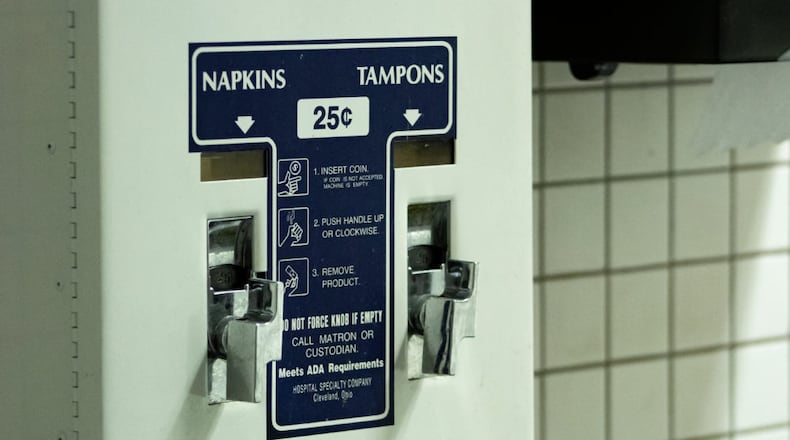People who experience periods are expected to supply themselves with proper hygiene products each month. But necessary purchases like pads and tampons are taxed — and a bipartisan group of lawmakers say it’s time to change that with a bill that would remove the sales tax from specific period products.
House Bill 810 seeks to exempt any products used to absorb menstrual flow from state sales or use taxes. This year's bill marks the third iteration of the proposal, which was first introduced in the 2017-2018 session. It is currently assigned to the Ways & Means subcommittee.
Rep. Debbie Buckner, a Democrat from Junction City, Georgia, has been the lead sponsor of each menstrual product taxation bill. She said in an interview that people have argued the tax on these items is not large enough to be an issue, but she believes the problem runs deeper than the cost.
“The issue is really not the amount of money per woman per product. The issue is that it’s not fair,” Buckner said. “If we’re going to talk about fair taxation, then we need to realize this is not a luxury item. It is a necessity. It is something that is a tax burden that only women have to bear, and there’s no comparable product that men have to have on a monthly basis.”
Buckner said that the problem compounds when looking at the wage gap between men and women in the U.S.
“You put a tax on the person that makes less for an item they can’t do without,” she said.
In 2021, Pandia Health estimated that the cost of pads and tampons alone for the average person experiencing a menstrual cycle will be more than $6,500 over their lifetime, though the cost can climb much higher when painkillers, birth control, and other related hygiene products are added. Georgia's sales and use tax rate is 4%, though many local jurisdictions have a higher percentage.
Using this cost estimate and the state’s current tax rate, the average Georgian who menstruates would save $261 exclusively on pads and tampons in their lifetime if the tax were lifted.
A 2021 study by U by Kotex revealed that 40% of people surveyed said they had struggled to afford period products at some point in their lives, representing a 35% increase from the same survey in 2018. Sixty-eight percent of those surveyed agreed that period poverty was a national problem.
Buckner said she has struggled to get her proposal a fair hearing, but she is cautiously hopeful about the bill’s chances next year — it has Republican and Democratic co-sponsors.
Buckner said she plans to push for a hearing because she believes there is enough money in Georgia’s budget to cover the tax elimination. She said the most recent estimate for the bill’s budgetary impact is between $9 million and $10 million dollars.
Nationally, U.S. Rep. Grace Meng, a Democrat from New York, is working to pass the Menstrual Equity for All Act with 94 co-sponsors, which will mandate the provision of period products for those who need them throughout the country.
“More Americans should know how serious and widespread this problem is, and that access to safe, affordable menstrual products is a basic need and a health care right for over half the population,” Meng said in a statement.
Buckner agreed that widespread conversation about the topic is necessary for progress to take place.
“We should not have to talk about it,” she said. “It should be as commonplace and as readily available as paper towels.”
For more from Fresh Take Georgia and the latest updates, follow us on Facebook and Twitter.
The post Georgia lawmakers push to eliminate tax on pads and tampons — again appeared first on Fresh Take Georgia.
The Latest
Featured



